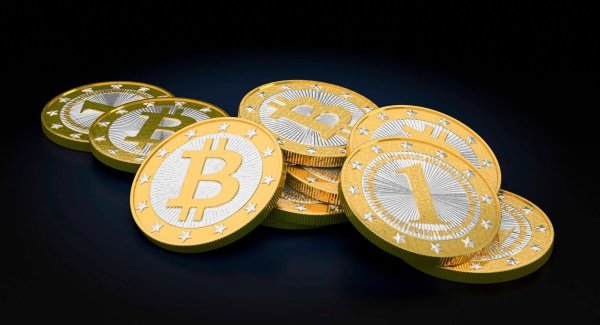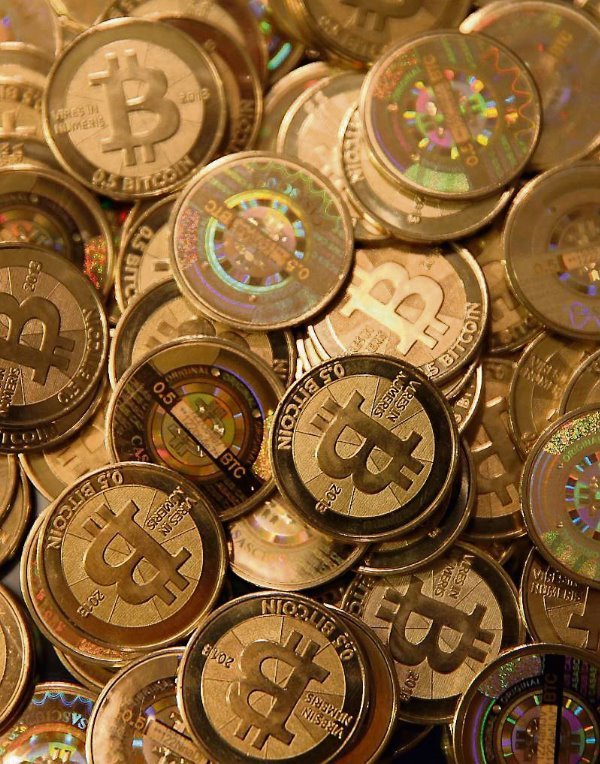
Is about time that we started taking bitcoin seriously asks David Gilbert, as he wonders if it’s here to stay?
What is bitcoin?
Last month, a judge in Florida ruled that bitcoin should not be legally considered money, dismissing charges of money laundering against website designer Michell Espinoza.
“The court is not an expert in economics; however, it is very clear, even to someone with limited knowledge in the area, the bitcoin has a long way to go before it the equivalent of money,” Miami-Dade Circuit Judge Teresa Mary Pooler said in her ruling.
The ideas behind bitcoin were first posited in a white paper published in 2008 which described a decentralised digital currency which was not tied to any government, bank or financial institution and using elegant mathematical and cryptographic functions would be completely transparent, trusted, and anonymous.
It was a libertarian’s dream, created by a person or group of people known only as Satoshi Nakamoto. One of the greatest mysteries of the internet age, the search for the creator of bitcoin has raised multiple false flags — including at one point 23-year-old Irish student Michael Clear — with the latest candidate an Australian entrepreneur called Craig Wright, though many now doubt his claims too.
Unlike traditional or fiat currency, bitcoins are something you cannot hold in your hand, but are simply a string of numbers, a completely digital currency. They are created by computers solving increasingly complex mathematical equations in a process which became known as “bitcoin mining.”
While initially possible to solve these equations using desktop PCs and laptops, today the equations are so complex that bitcoin mining is the preserve of huge operations who invest millions in cutting-edge hardware designed specifically to mine bitcoin.
Early proponents of the digital currency were able to quickly and easily build up big stores of bitcoin, but at the time these were only worth a fraction of a cent each.

One of these early proponents was Laszlo Hanyecz, and in 2010 he managed to talk someone into accepting 10,000 bitcoins he had mined on his computer in exchange for two pizzas. At the time bitcoin was seen as having zero value, so getting someone to swap them for real-world items was a major breakthrough — however at today’s valuation, those 10,000 bitcoin would be worth over €5.1m.
The value of bitcoin is one of the digital currency’s most intriguing aspects. From being worth virtually nothing in the early years of its development, bitcoin began to gain some traction in 2013 as people began to investigate its unique features, and by the end of that year one bitcoin was trading on exchanges for over $1000. That bubble quickly burst however, and the price plummeted to as low as $200 before recovering somewhat. Today one bitcoin is trading at around $570, but in the past few months that figure has fluctuated wildly between $450 and $800.
While many see bitcoin as an alternative version of gold, as a store of value, many are put off investing in the digital currency exactly because of its wildly fluctuating price. As a currency, bitcoin has a number of limitations.
One of those is simply the act of buying bitcoin and spending it, and while it has become much easier to do in recent years, for the vast majority of people, it is still a challenge. Buying bitcoin is relatively simple. Just go to one of the many online exchanges — such as the Irish-based Bitex — where you can swap bitcoin for euros by using your bank card and download that bitcoin to your bitcoin wallet, a piece of software which you download to your PC or smartphone to store your digital coins. An even easier way to get hold of bitcoin is by using a bitcoin ATM which allows you swap euro notes for bitcoin in a matter of seconds. Unfortunately there is currently just one such machine in central Dublin.
While spending bitcoin in major centres like London, New York, and Toyko is relatively easy, doing so in Ireland is still a bit of a challenge.The Bitcoin Foundation of Ireland has a list of businesses who will accept bitcoin in place of traditional currencies on its website. Given its inherently digital nature, lots of online retailers are now also accepting the currency.
Given the idea is less than a decade old, is still completely unregulated and the value fluctuates wildly on a daily basis, predicting the future of bitcoin is difficult. Adding to this uncertainty are continuing problems with security surrounding bitcoin exchanges — one exchange just last week lost almost €50m of its customers’ bitcoin in a cyber attack.
Despite the large media interest in the cryptocurrency, it is still very much a niche technology that few use. Using bitcoin is simply too difficult . It also remains completely unregulated and viewed with suspicion by banks and governments.
While no one really knows if bitcoin will disappear completely or becoming the de facto digital currency standard, the technology which underpins it, known as the blockchain, will certainly have a major impact on all our lives in the coming years.
The blockchain is a distributed ledger which means all transactions on it can be verified by all users, making it virtually tamperproof and perfect as a way of independently recording ownership without the need for costly and inefficient third-parties.
This technology is being developed by a range of industries and financial services where it could revolutionise remittance and trading and provide proof of provenance for customers, most interestingly in the garment industry.
Authors get paid when people like you upvote their post.
If you enjoyed what you read here, create your account today and start earning FREE STEEM!
If you enjoyed what you read here, create your account today and start earning FREE STEEM!
Nice post! I think bitcoin is a some middlesociety for money
https://steemit.com/blockchain/@soomrack/bitcoin-blockchain-steem-middlesociety-and-math-management
Downvoting a post can decrease pending rewards and make it less visible. Common reasons:
Submit
Good question. According to classification by government (those who has taken a decision about bitcoin), it is a commodity like gold and silver. It is therefore not legal tender.
If you look at the history of money, it was created independently from any government. The community decided what to use as a medium of exchange. It settled on gold, and the characteristics of money became something you can use to measure value, exchange value and store value. History demonstrates the cycle which accorded more than once of the community creating money, the government get involved and destroy it. The latest agreement between the community and government is that the community can create money, but the government with putting its stamp of approval on it to ensure that it has value. This is the reason why the Reserve Banks are private institutes and not a government institution. With the 2008 crisis, the relationship changed when the government starts to print money and to use the Reserve as a government institute.
Back to your question. Bitcoin is not money according to the government, but it is money according to the community as you can measure, exchange and store value with it.
Downvoting a post can decrease pending rewards and make it less visible. Common reasons:
Submit